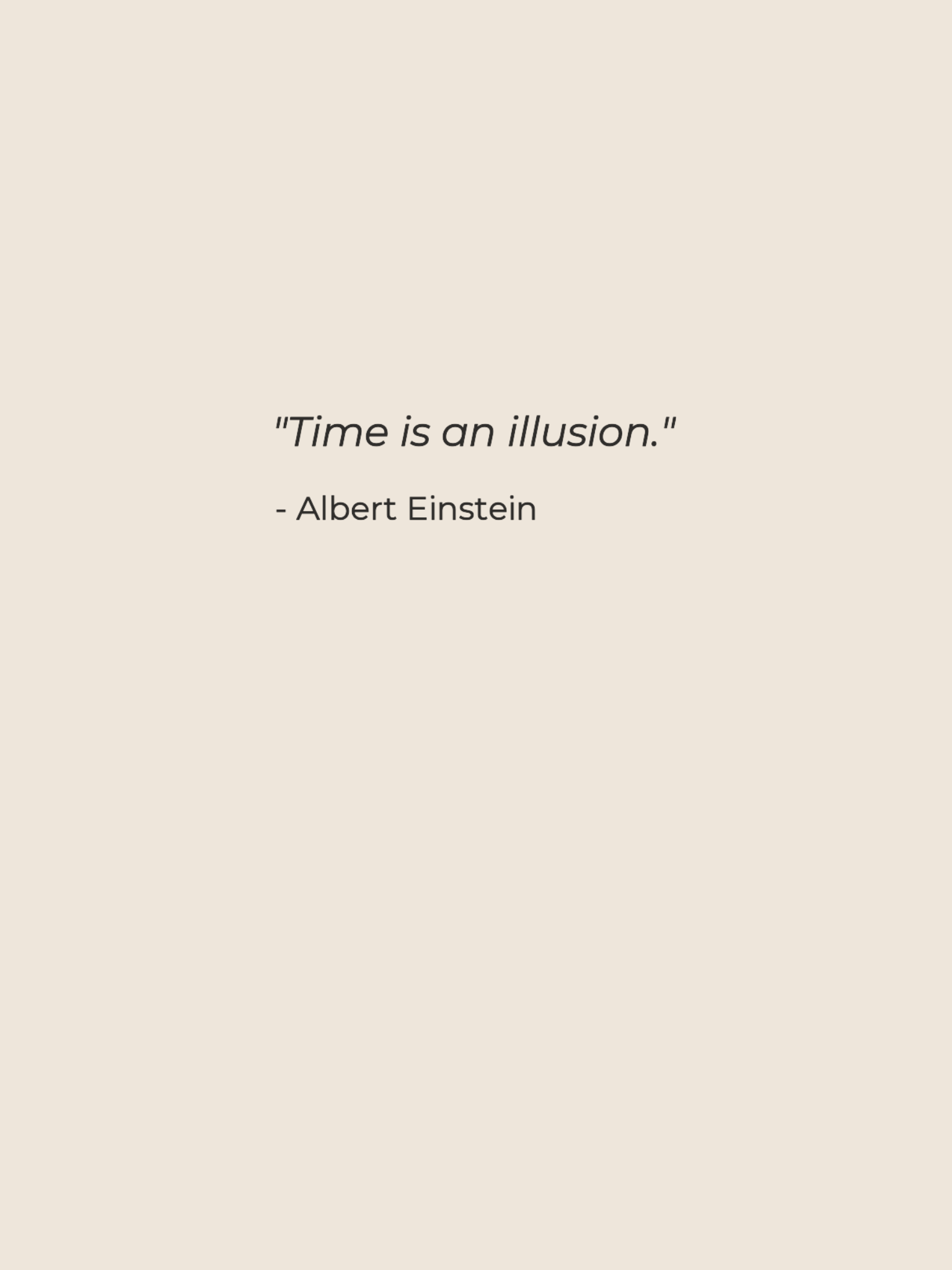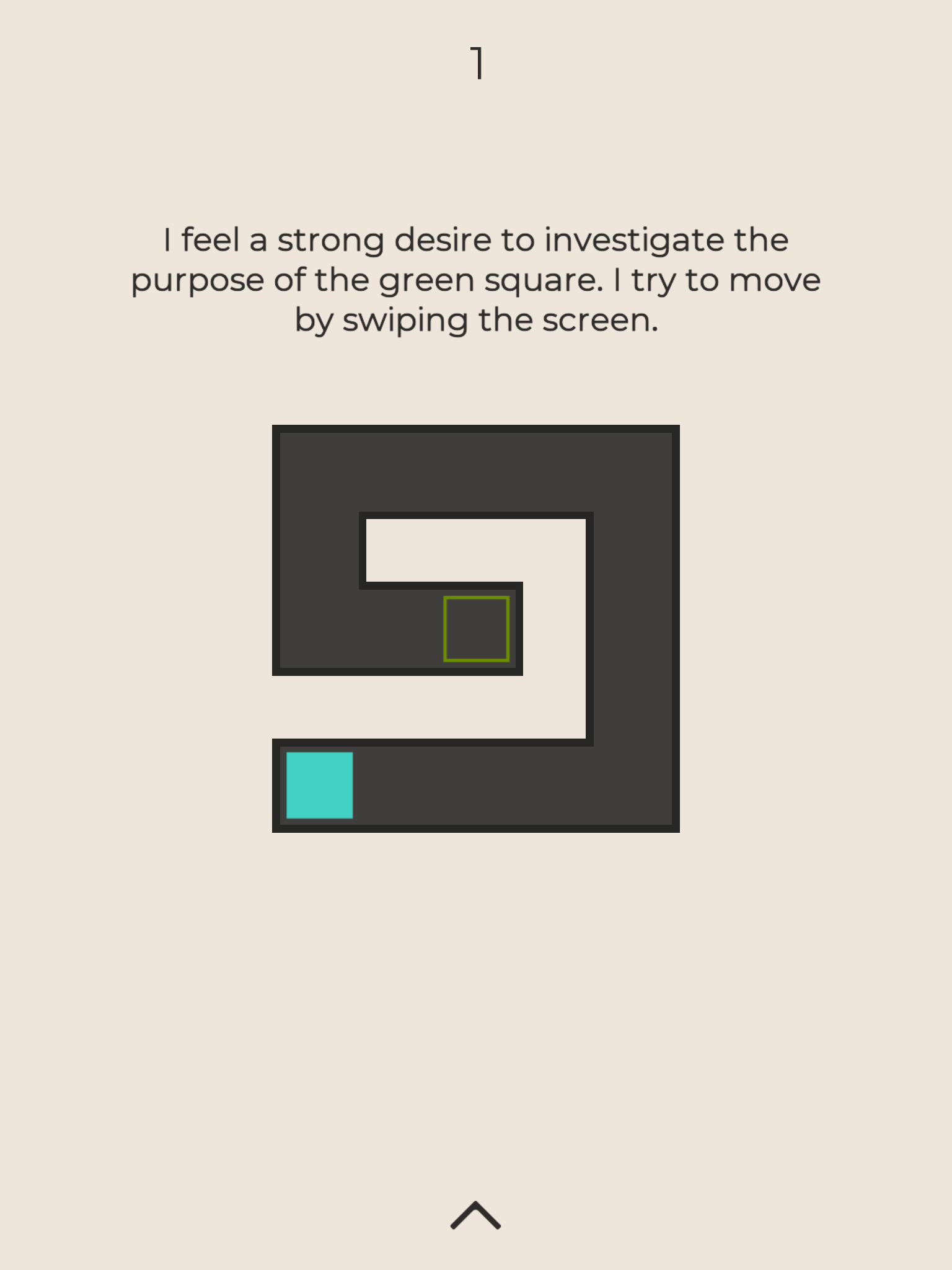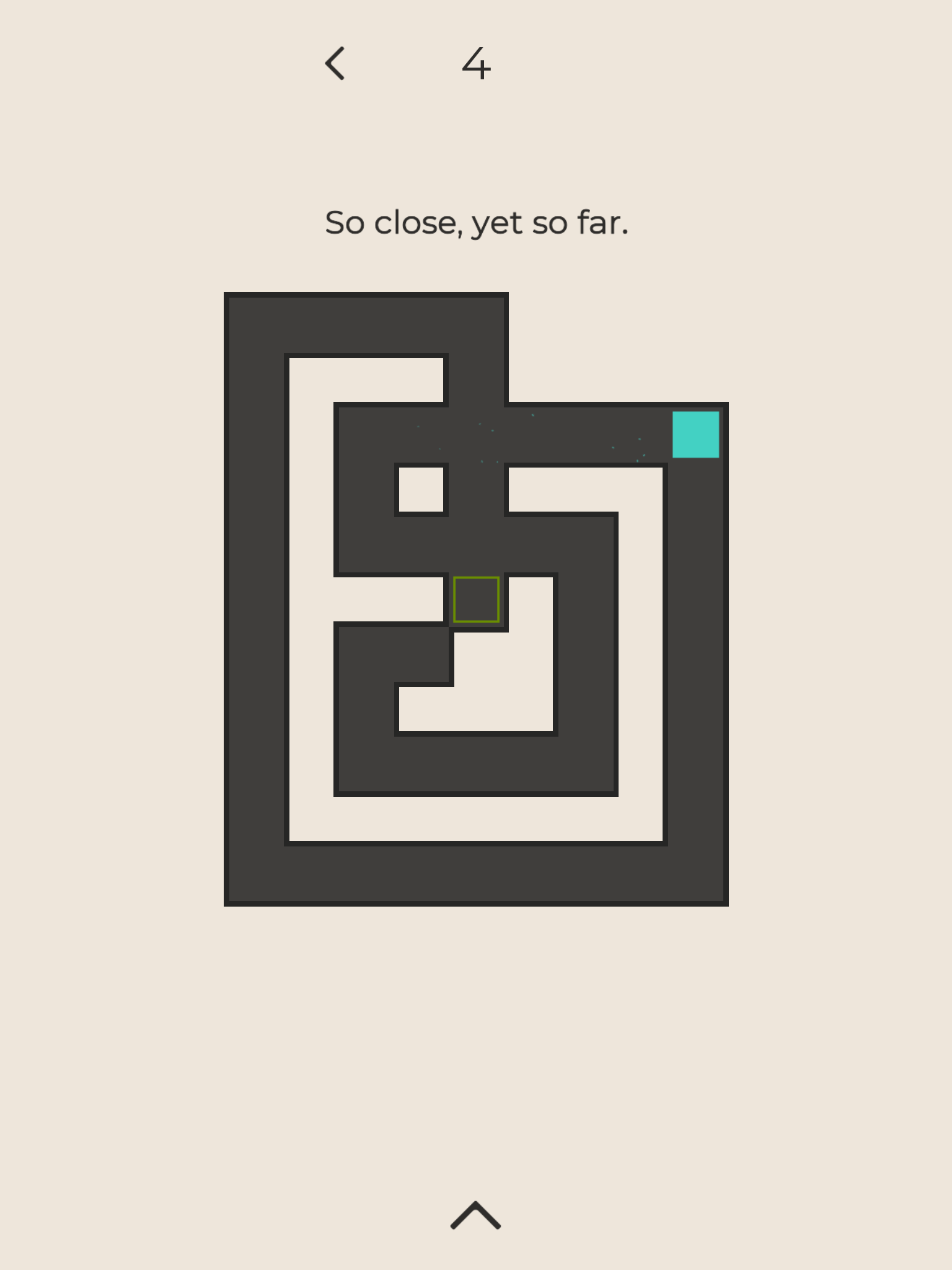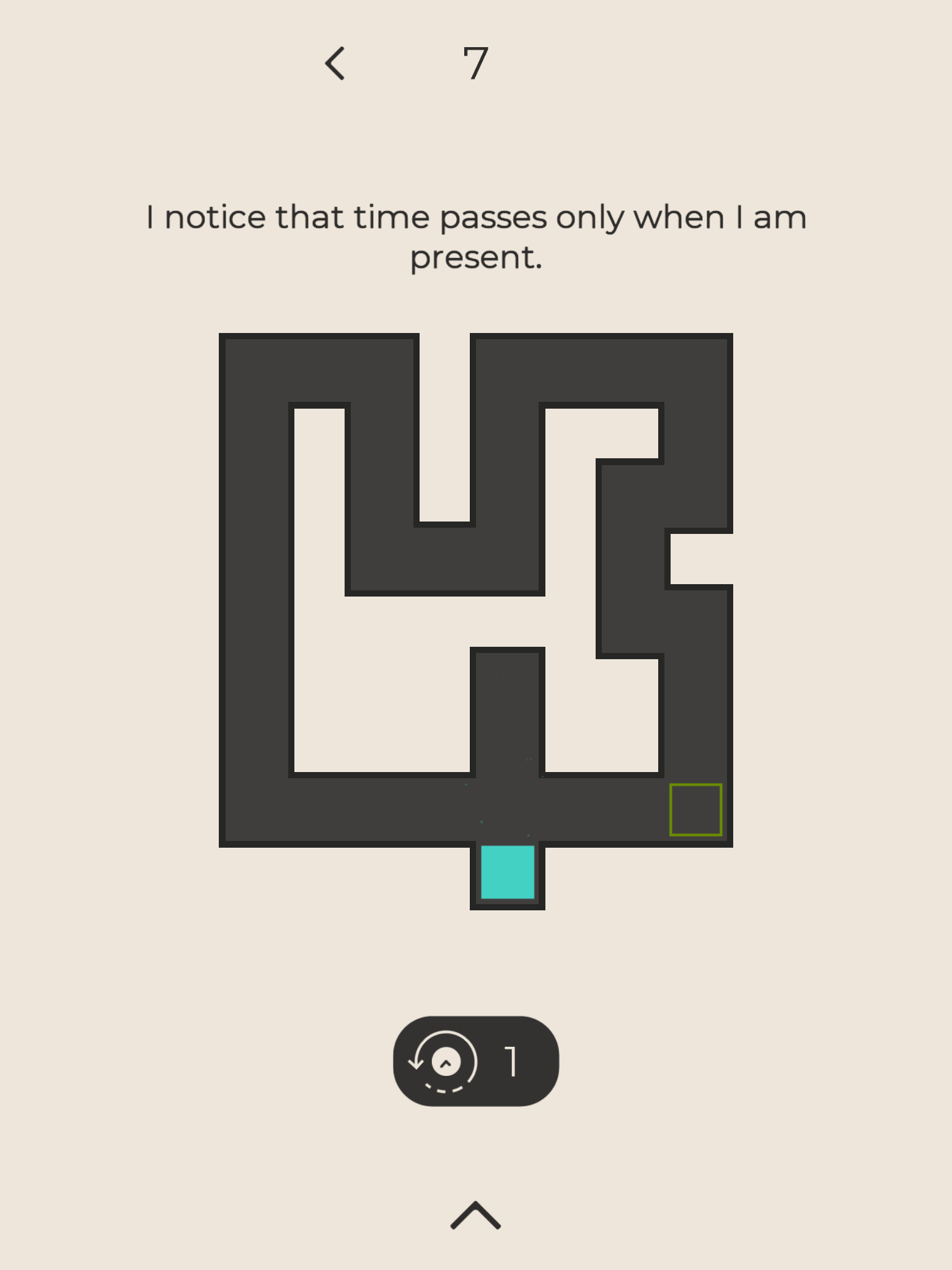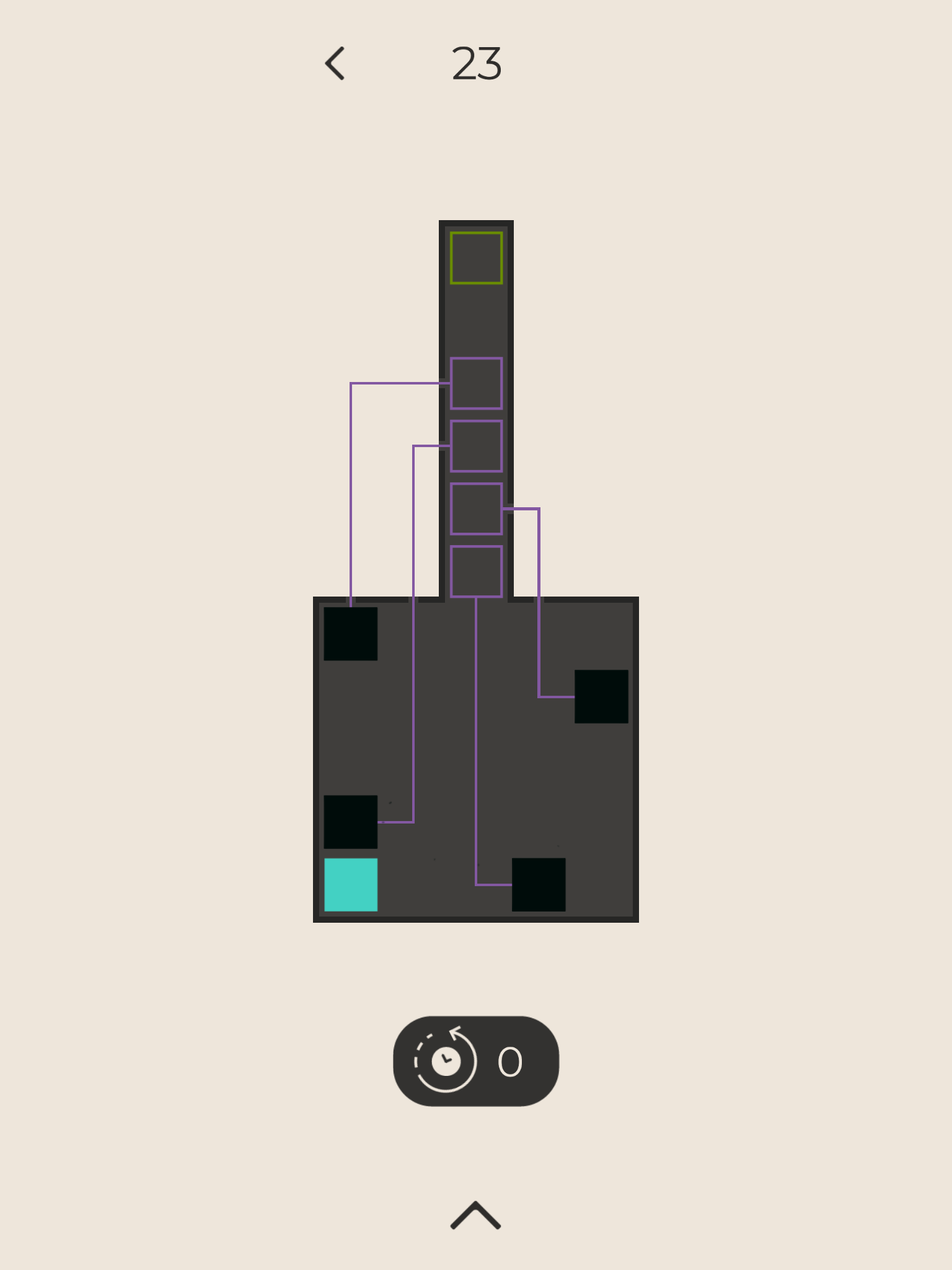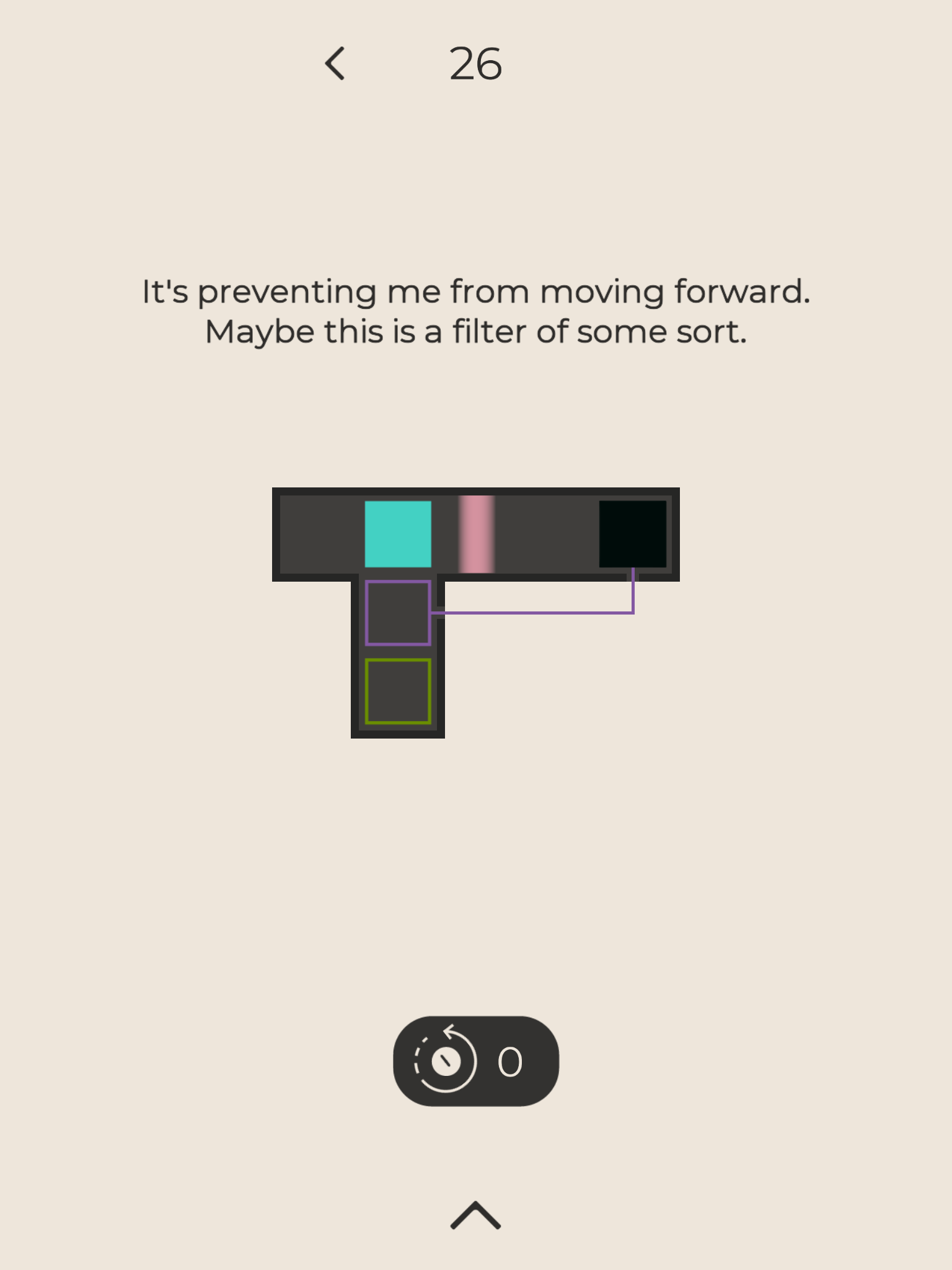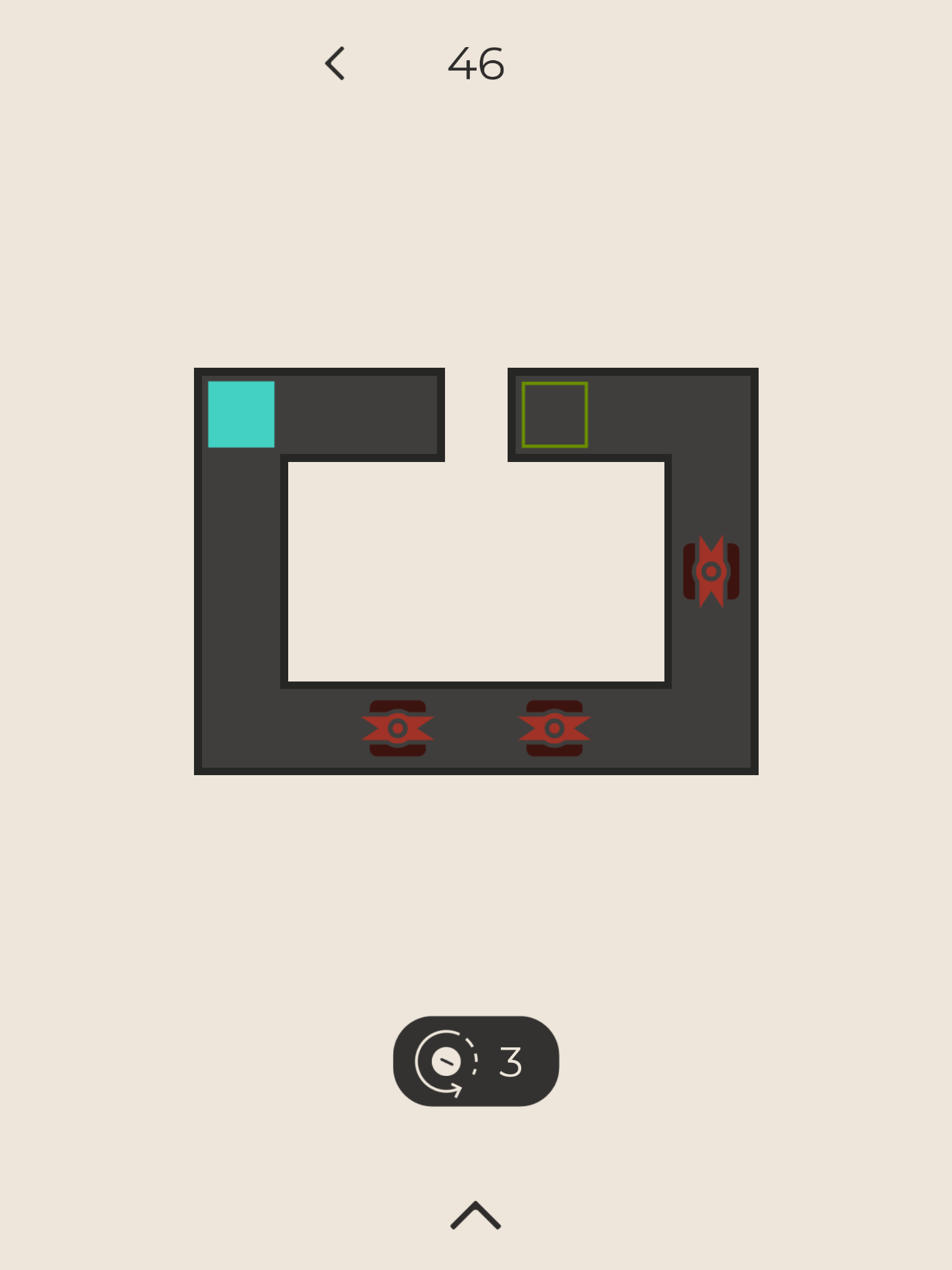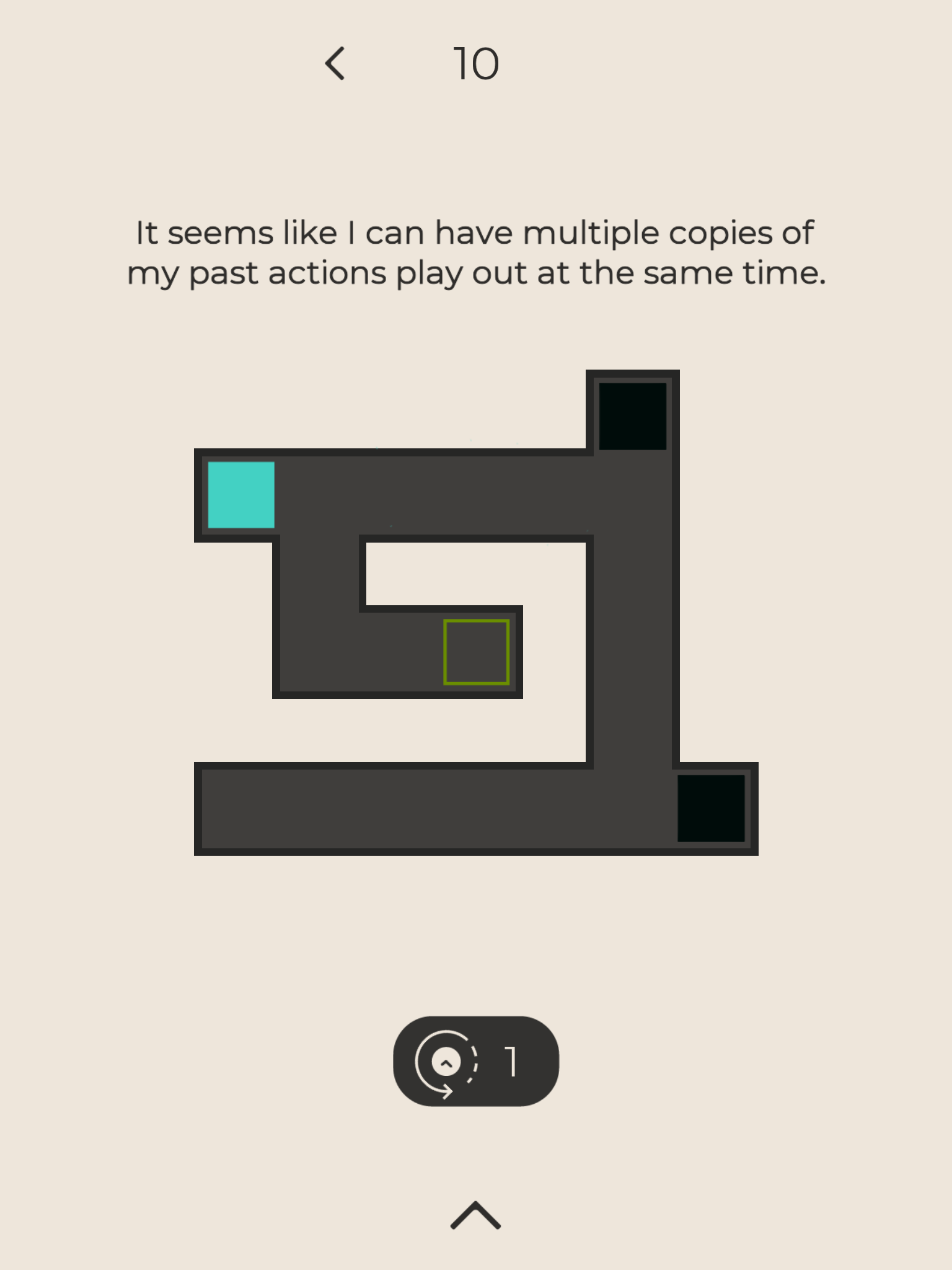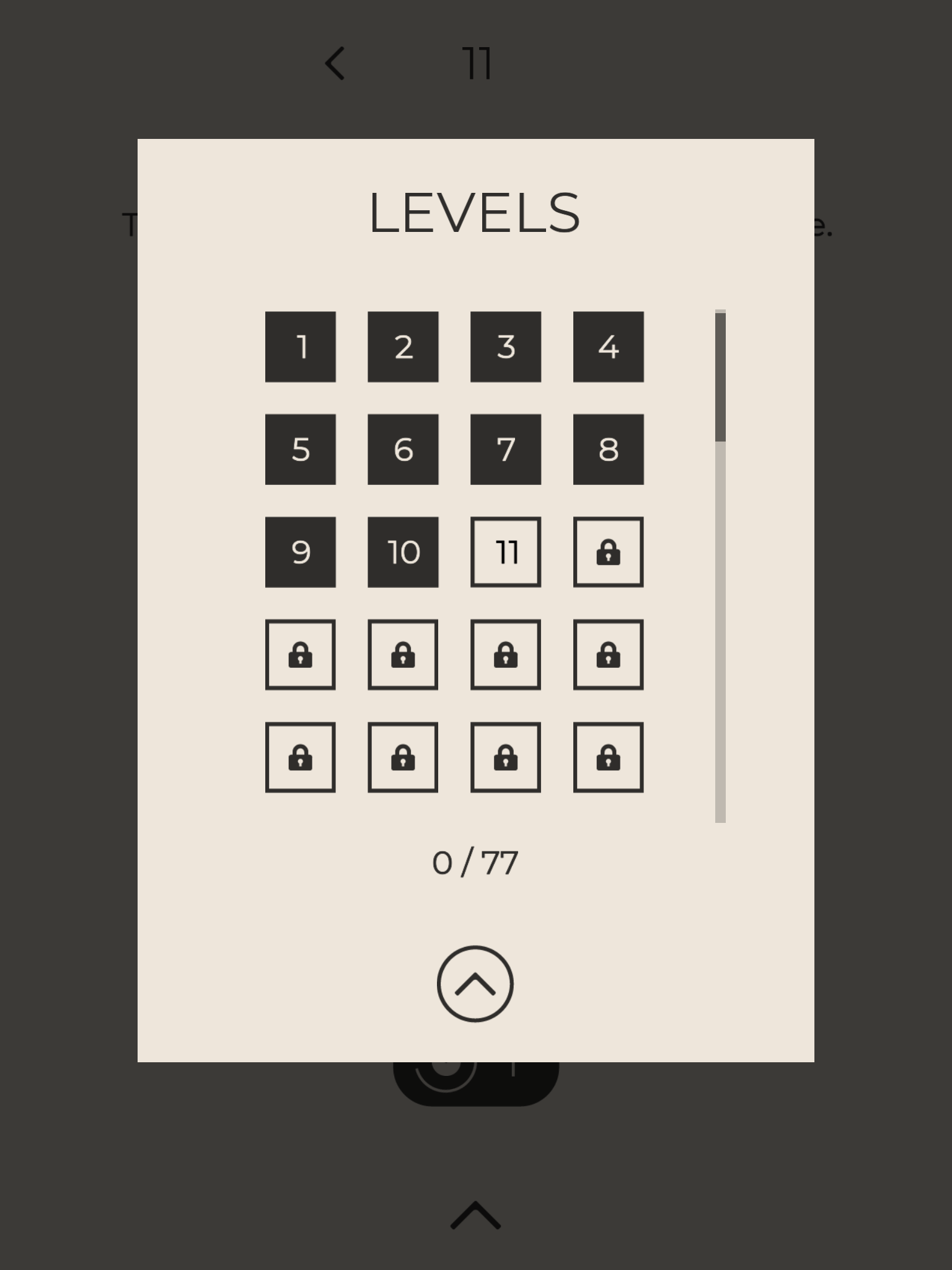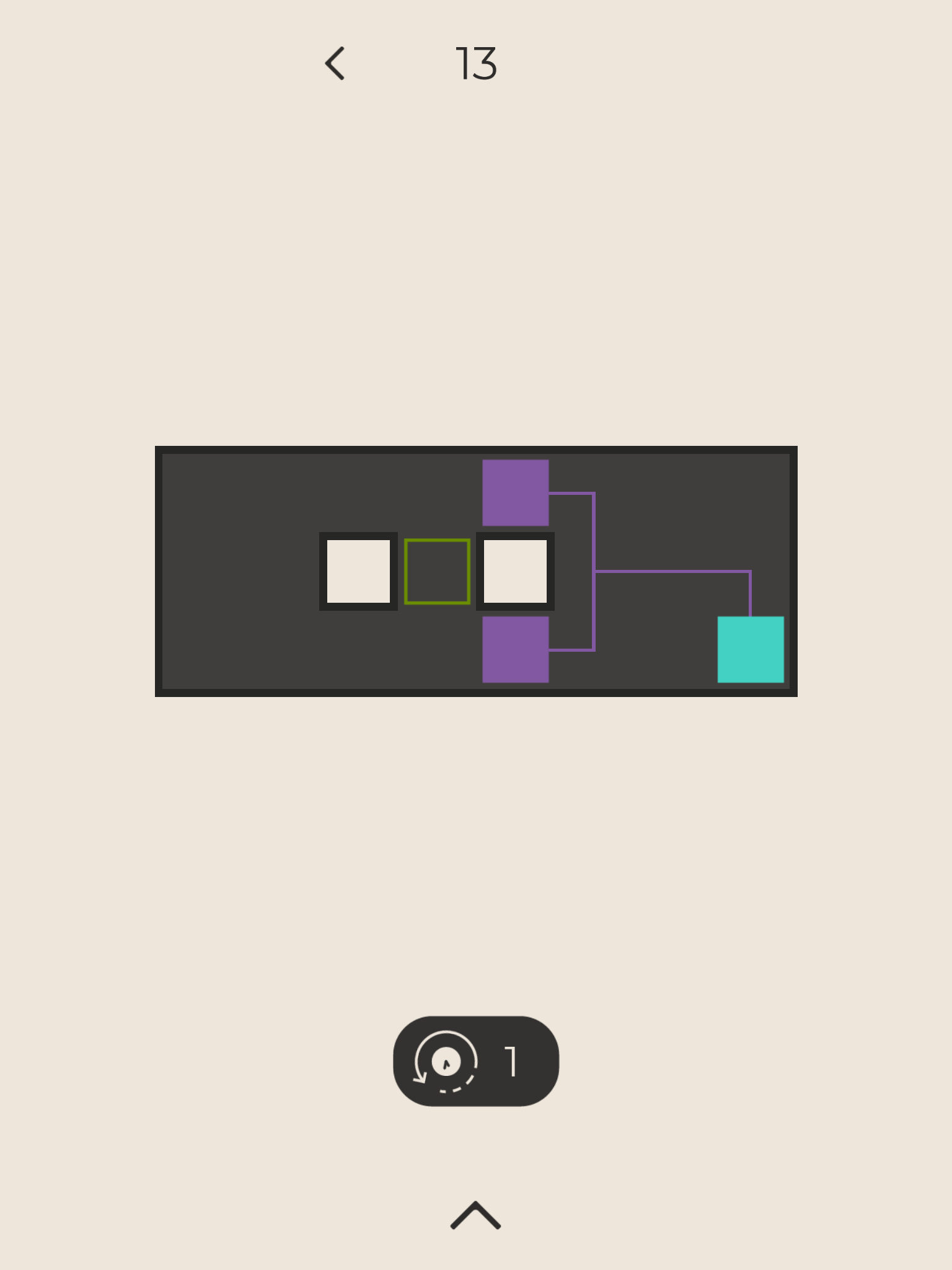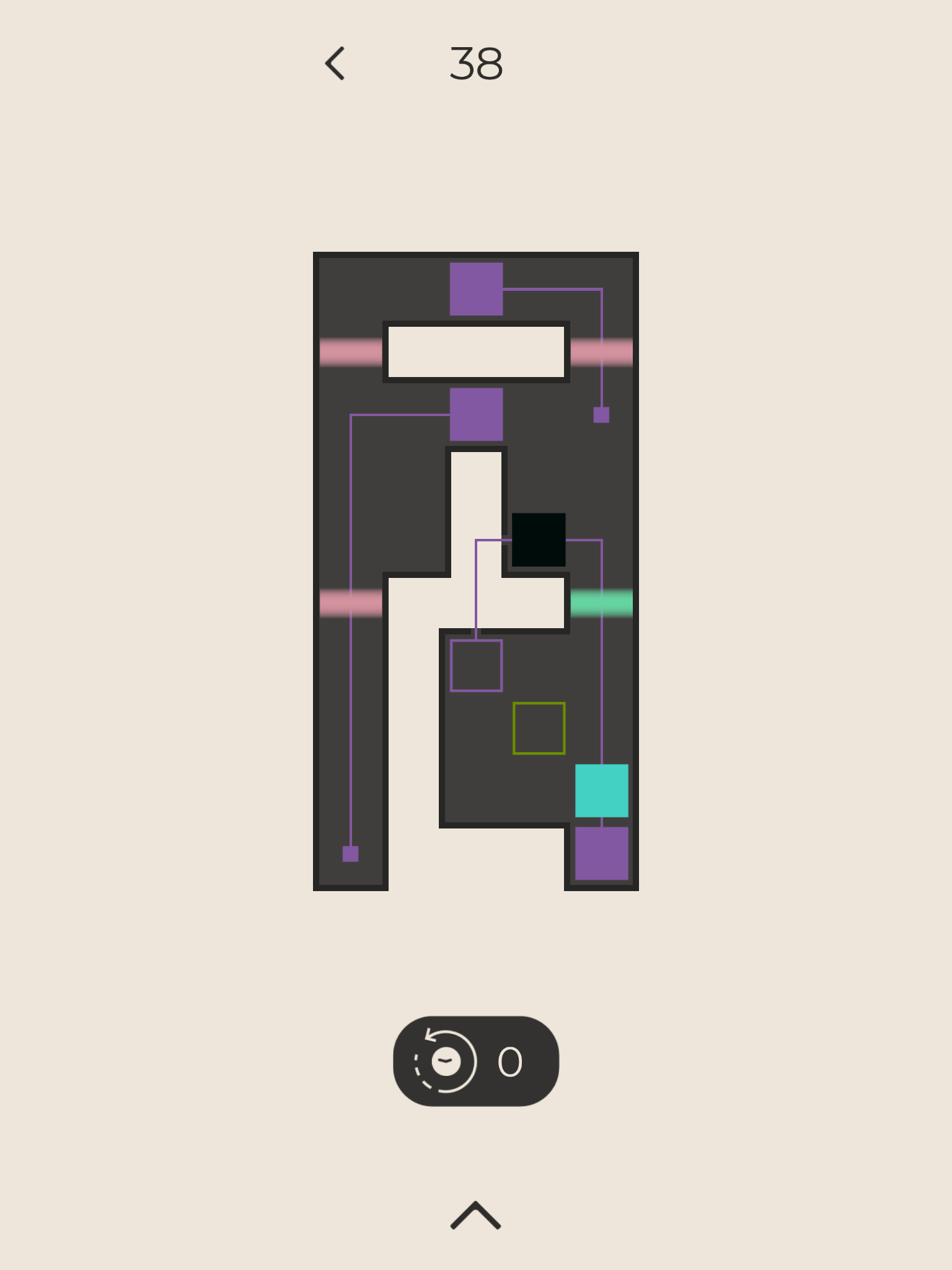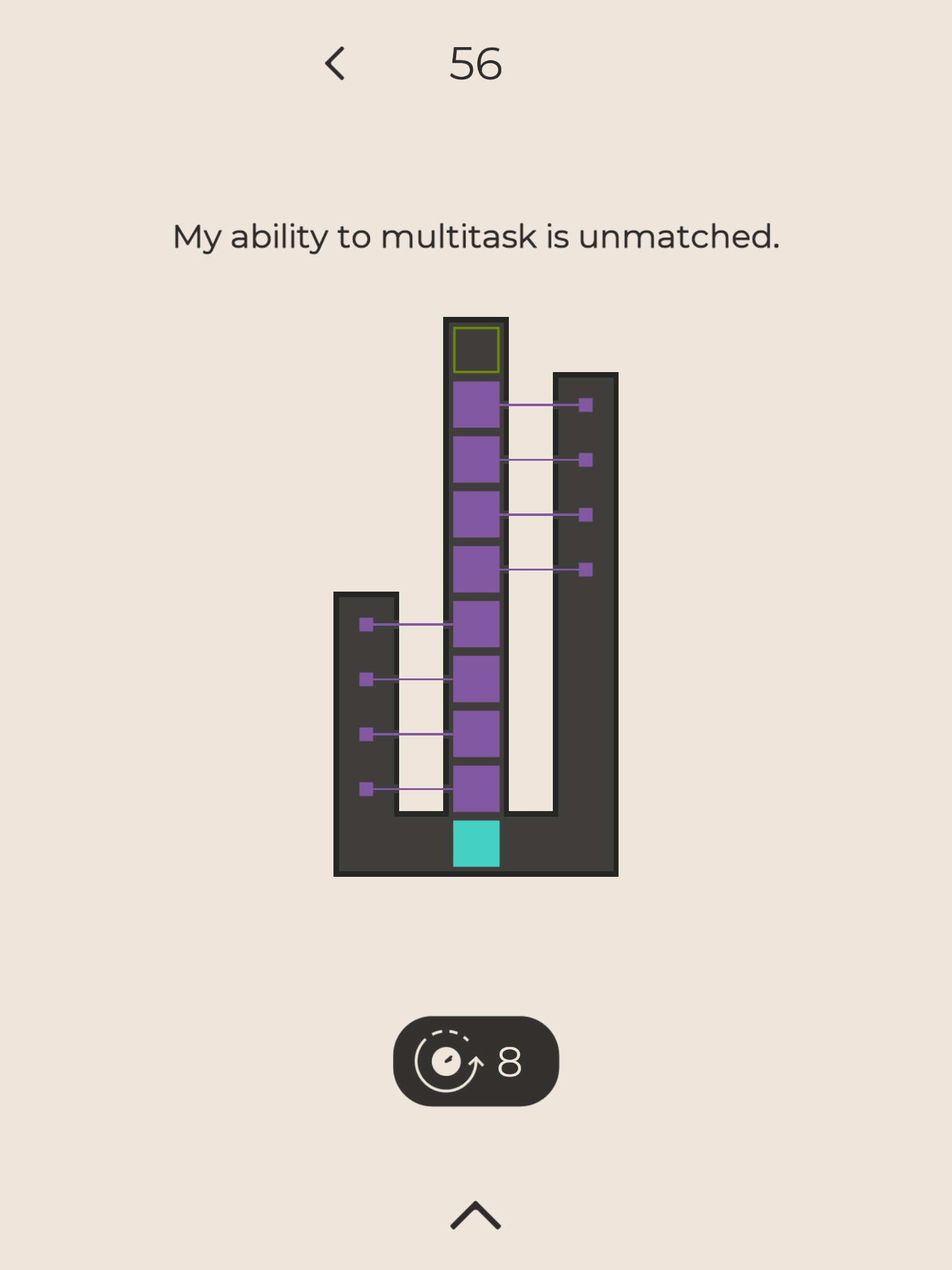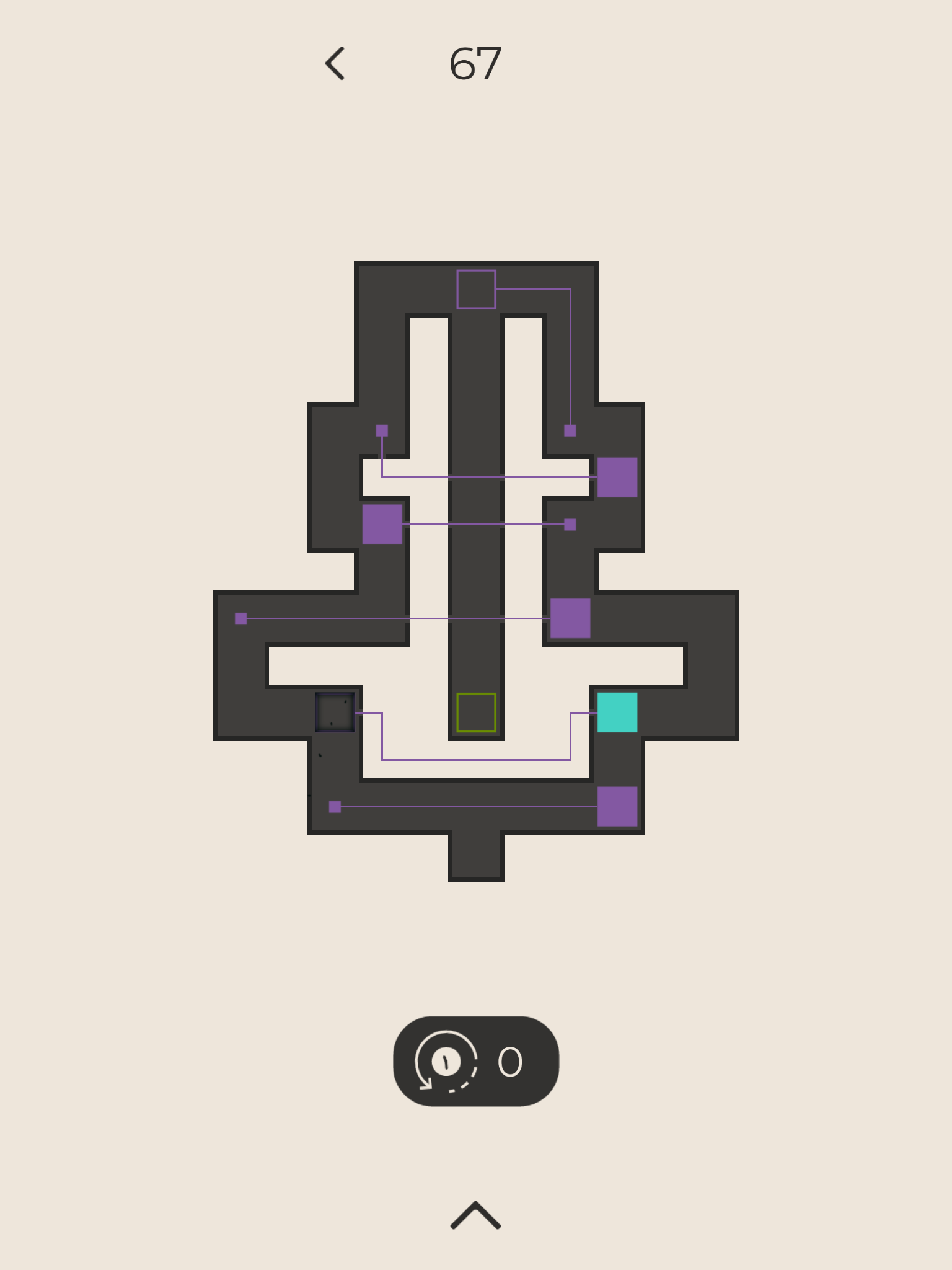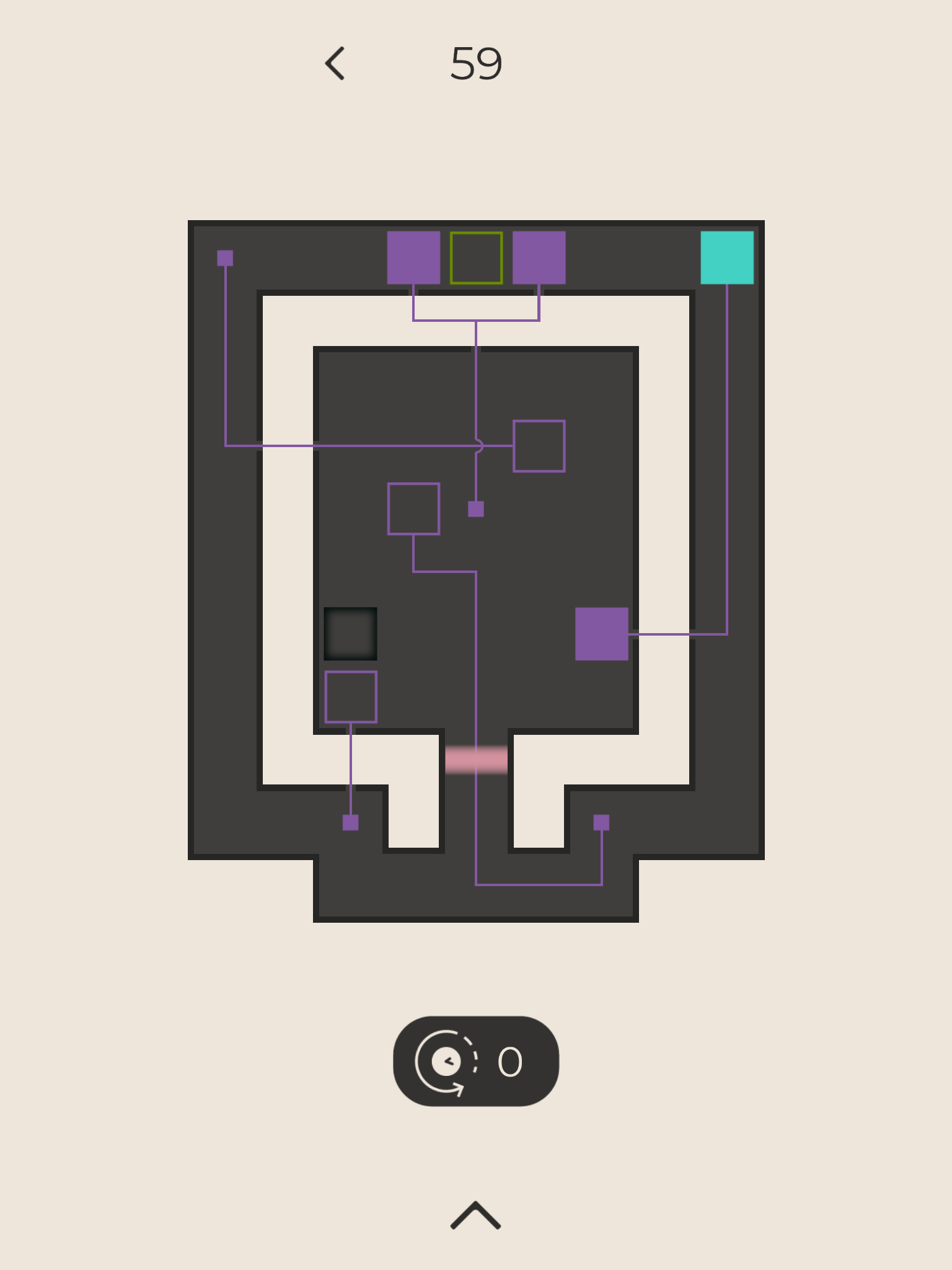The Chronos Principle is a real neat little puzzle game based on sliding a square around increasingly complex levels in order to reach a goal with the twist that levels have a number of “tries” that you get and that each previous try affects the game area while you’re trying to reach the end. Moving squares in specific positions to act as stoppers for your following tries, so you can get in different places. You’ll also have barriers that can only be traversed by your previous tries, and other puzzle elements such as these. I quite enjoyed it, even if the core idea of having multiple tries being tied to real time.
I have not much to say about the diverse mechanics that The Chronos Principle deploys as you go along; They are neat ideas and make the levels increasingly complex and become tests or your timing and thinking ahead. What I have issue with is the timing aspect of the game. When you move your square around and plan for the following “tries” in order to use your already existing squares - either as stoppers or to open paths - the game records your actions in real time and then plays them back to you. This means that if you start a level and think about your next moves for a long period of time, you’ll probably need to restart because when you playback that run, the old square will also wait for that long period of time. This becomes annoying in spots and the lack of precision - you don’t have a good way to tell when things are going to happen on a timeline - has you counting beats in your head and timing actions mentally, which isn’t that obvious. Maybe the game would’ve worked as well on a “turn”-based system where actions are played in sequence, move by move, instead of in real time - in this case, a ‘wait’ action would’ve been necessary.
The Chronos Principle is still really fun and complex puzzler so I recommend it wholeheartedly. It took quite a bit of time to wrap my head around the time mechanic - and it still got frustrating - but that didn’t stop me to complete the game. There are a ton of iOS puzzlers based on abstract shapes and simple mechanics like this one, but it was interesting, check it out!
